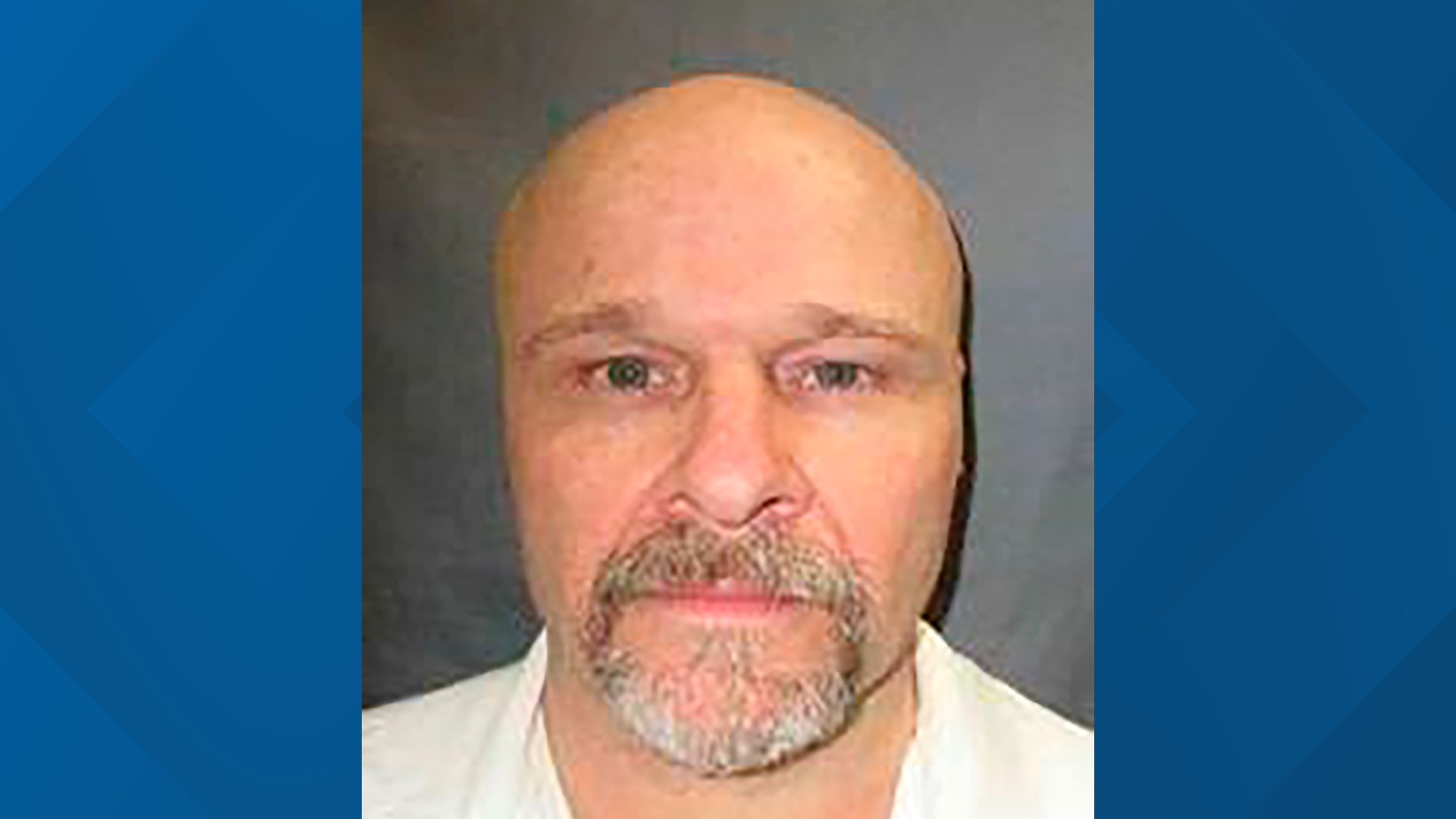HUNTSVILLE, Texas — A Texas inmate has been executed for fatally stabbing two Houston-area brothers during a robbery in their home more than 30 years ago.
Rick Rhoades was executed by lethal injection Tuesday evening at the state penitentiary in Huntsville.
He was condemned for the September 1991 killings of 31-year-old Charles Allen and 33-year-old Bradley Allen.
The brothers were killed less than a day after Rhoades had been released on parole after serving a sentence for burglary.
The U.S. Supreme Court declined to delay Rhoades’ execution over claims the inmate’s constitutional right to due process was being violated because he was being prevented from pursuing allegations that some potential jurors were dismissed for racially discriminatory reasons.
The 57-year-old Rhoades was White.
Previous story:
Texas is set to carry out its third execution of the year tonight in Huntsville. Rick Rhoades, 57, is scheduled to die for killing two Pasadena brothers 30 years ago.
In a last-ditch effort, his attorneys are hoping to delay the execution while they explore whether racial bias during jury selection tainted his trial, the Texas Tribune reports.
Rhoades was convicted of killing Charles and Bradley Allen in September 1991, a day after his release on parole from a five-year sentence for car theft and home burglary.
Rhoades told police he took a bus to Houston and began drinking while wandering around his old neighborhood into the early morning, according to court records. He got into an argument with Charles Allen outside the brothers' home, and Rhoades said he followed him inside because he thought he was getting a gun.
Rhoades confessed that he beat Allen with a metal bar and stabbed him with a knife Allen had grabbed during the attack, the records said. Bradley Allen came out and began to hit Rhoades, who stabbed the brother. Prosecutors said Rhoades took clean clothing and cash when he left the house.
Rhoades told police he found out the brothers died from the news later that day. When he was spotted during a school burglary weeks later, Rhoades said he was “tired of running” and was bothered by the murders, the records state.
Shortly after he was sentenced to death in 1992, Rhoades, who is white, began arguing in appeals that Harris County prosecutors eliminated potential jurors from his trial because they were Black. A Texas court said his attorneys argued the county had a history of trying to exclude Black people from jury trials.
When choosing jurors for trials, defense attorneys and prosecutors are able to remove a limited number of people from the potential juror pool without giving a reason, as long as the reason is not because of the person’s race. In the courtroom and in their appeals, Rhoades’ attorneys challenged two strikes as race-related, arguing that prosecutors probed the responses of two Black jurors more thoroughly than the white people on jury panels, as if looking for reasons to reject them.
By 2019, state and federal courts of all levels had rejected Rhoades’ challenges, ultimately finding that prosecutors had reasonable grounds unrelated to race for striking the two Black people from the jury pool. Of their 14 strikes allowed without giving reason, the prosecutors had also struck 12 white people, an appeals court noted.
Rhoades’ jury ultimately was made up of 10 white jurors, one Hispanic juror and one whose race was not clear from court records, the appeals court said.
This year, Rhoades’ attorneys again sought missing information on the potential jurors. They argued that more information, like the racial breakdown of the entire jury pool, has not been disclosed, keeping Rhoades from presenting arguments that his trial was corrupted by racial bias.
“He has been prevented from developing and raising his claim because the State has denied him access to the materials provided for by state law — materials which are necessary to conduct the comparative juror analysis,” his attorneys wrote in a district court filing in July.
The Harris County district attorney’s office told Rhoades’ attorneys that there are more records on the jury pool available, but the trial court must order the release of the records. The trial court judge said she had no jurisdiction and wouldn’t rule on the matter, the courts said, prompting Rhoades’ latest appeals to state and federal courts.
“It is clear — and indeed the district attorney has not disputed — that, under state law, the motion Counsel filed was precisely the correct vehicle by which to ask for access to the juror information,” his attorneys argued in a filing last week.
In a 5-4 ruling, the Texas Court of Criminal Appeals in July declined to order the trial court judge to rule on the matter, though dissenting judges said the judge’s refusal was inconsistent with court precedent and suggested the court should have asked the judge why she didn’t think she had jurisdiction. A federal district court and appeals court also rejected Rhoades’ motions as of Monday.
Rhoades’ attorneys said Monday they would file a last-resort appeal to the U.S. Supreme Court.
This story is from our news partners at the Texas Tribune.

